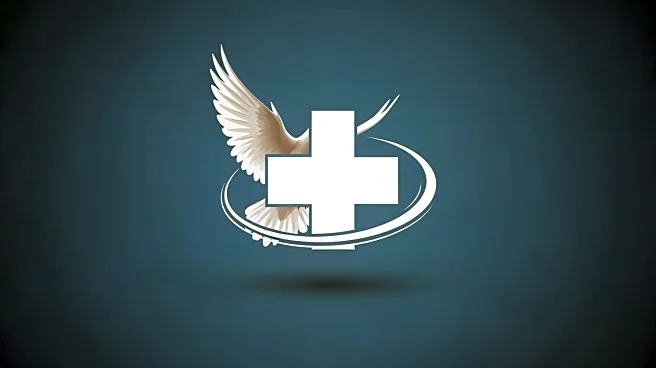What's Happening?
The World Health Organization (WHO) has called for urgent medical evacuations for approximately 15,000 patients in Gaza who require immediate medical attention. This plea comes in the wake of a fragile
ceasefire, which has allowed some movement but not enough to address the critical needs of the injured and sick. Among those in dire need are children with severe injuries and illnesses, such as Amar Abu Said, who was paralyzed by a stray bullet, and Ahmed al-Jadd, who requires surgery for a brain tumor. The WHO has coordinated a medical convoy to transport 41 patients and 145 carers to hospitals abroad, but the organization stresses the need for increased evacuations. The UN agency is advocating for the reopening of the Rafah border crossing with Egypt to facilitate these evacuations, a move that Israel has resisted pending the fulfillment of ceasefire terms by Hamas.
Why It's Important?
The situation in Gaza highlights the severe humanitarian crisis exacerbated by prolonged conflict and limited medical resources. The inability to evacuate patients for necessary medical treatment poses a significant threat to the lives of thousands, particularly children. The WHO's call for action underscores the international community's responsibility to address these urgent needs. The potential reopening of border crossings for medical evacuations could alleviate some of the suffering and prevent further loss of life. This situation also places pressure on Israel to balance security concerns with humanitarian obligations, while international bodies and countries may need to step up support in terms of medical aid and diplomatic efforts.
What's Next?
The WHO and other international agencies are likely to continue pressing for increased medical evacuations and the reopening of border crossings. The response from Israel and Hamas will be crucial in determining the next steps. If Israel agrees to allow more evacuations, it could lead to improved humanitarian conditions in Gaza. However, if the current restrictions remain, the international community may need to explore alternative solutions or increase diplomatic pressure to ensure the safety and health of Gaza's population.









